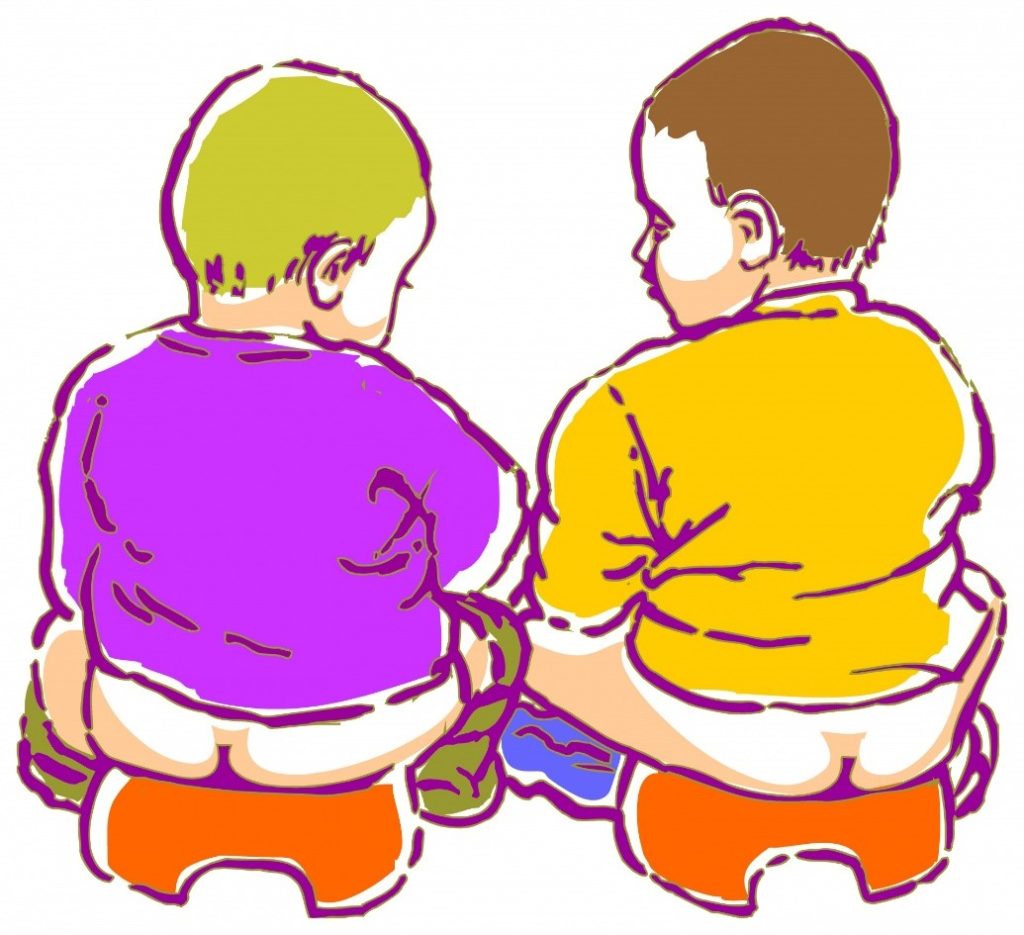Readiness versus Reactivity

A parent of three-year-old fraternal twin boys recently asked me for advice about toilet training. She and her husband disagree about how this should be managed. Parents experience successful toilet training as an important developmental milestone, and rightfully so. The transition from diapers to toilet paper is a significant step toward autonomy. However, as with all developmental markers, we must treat each child according to his or her individual circumstances.
As a psychotherapist, I disagreed with her husband’s desire to resume potty training in the midst of one twin’s protests and tantrums. The most salient point to remember is that we are entering dangerous territory if we attempt to force a process that we do not have control over. The youngster experienced a couple of upsets within the last few months. Moving to a new house was a very big transition, and an unexpected visit to the emergency room was anxiety provoking.
I advised both parents to give their son control over hisreadiness to use the potty. He needs to master this milestone by himself so he can feel proud, motivated, and successful. Of course, validation and encouragement are essential; however, becoming a “big boy” and using the toilet must be his decision and must be based on his readiness and comfort level. Giving their son control over when he uses the potty again will empower him to manage whatever feelings emerge about using the toilet. Also, some children are highly motivated by peer pressure and sibling competition—so, he may surprise everyone and decide on his own when he wants to use the potty.
I understand that some people might feel concerned that this boy is not yet toilet trained. His parents intuitively recognize what their child needs better than anyone else. He will use the potty when he is ready. He will experience feelings of pride and competence, which will nurture self-esteem and resilience. Toilet training is not a requirement that can be imposed on a child. When this process is forced, it can have detrimental consequences and interfere with a child’s natural inclination to find and trust his own threshold for mastery and self-regulation.
Image is in the public domain courtesy of Kristian Tylor from publicdomainpictures.net


I quite agree, twins are not always achieving milestones at the same time, praise for success and ignoring failure are the best ways of getting a child to do anything new
and big changes like a house move will often make a child insecure and frightened of change. If one twin is successful the other may well follow his lead if it seems to be a way of getting positive attention – at the moment negative attention for not using a potty may be more attractive! See TWINS AND THE FAMILY